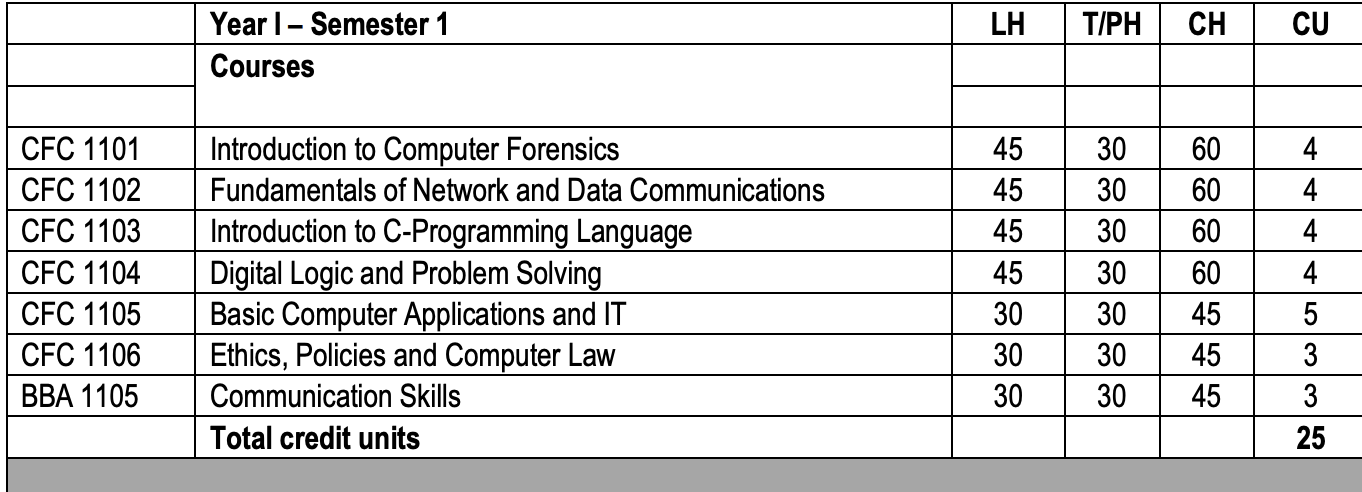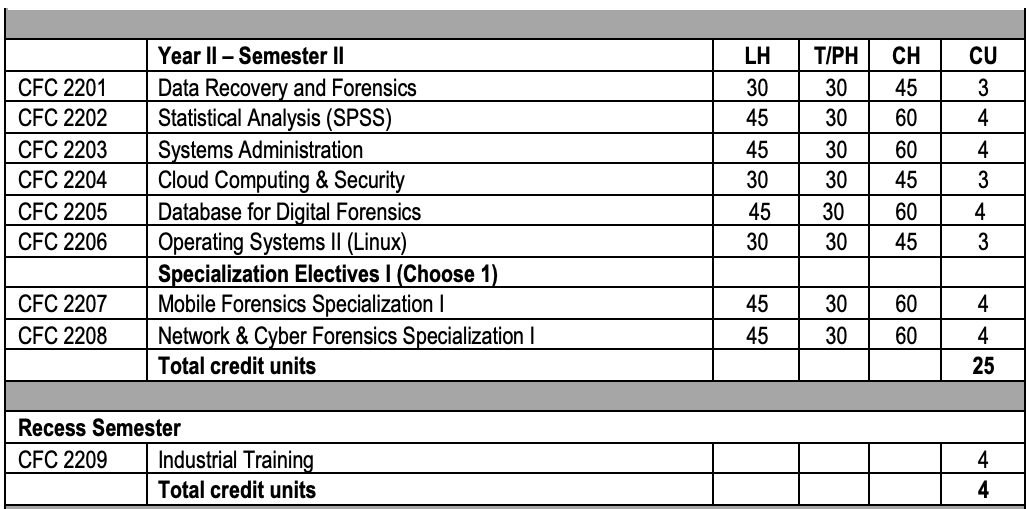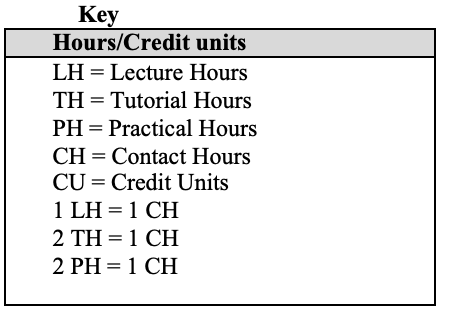
Ignite The Future
The Bachelor of Computer Forensics and Criminal Investigations (BCFCI) program philosophy is to train professionals who are conversant with Computer forensic investigations in the complex modern and evolving digital environment; and who have knowledge, skills and above all, appropriate attitudes that will make them sufficiently competent to run digital forensic investigations so as to curb down current and evolving computer crimes. It is a 3-year program that looks at the different factors affecting our daily lives as tech-generations.
Developments of new technologies are emerging into digital spheres of interaction between humans and machines/technology. At one end, humans are compromising some of their rights such as privacy, and also exposing themselves to e-criminals, where at the other end technologies are serving the purpose of human needs satisfaction. Many people are misusing technology advancements and thus hurting intentionally or not, other users. Many crimes have been conducted against cyber users and the advent of Artificial Intelligence is radically altering the digital landscape.
BCFCI, a remarkable discipline has been developed to increase capacity of investigators to tackle computer crimes issues in Uganda and globally.
The objectives of the Bachelor of Computer Forensics and Criminal Investigation programme is to graduate skilled graduates who are;
Target groups
The Bachelor of Computer Forensics and Criminal Investigation program will extend over a period of three (3) years. An academic year shall consist of two semesters of 17 weeks (15 weeks for classes and 2 weeks for examinations). The first, second and third years will in addition have a recess term of 10 weeks. A full-time student shall not carry less than 15 credit units and not more than 25 credit units per semester (except for the Recess Term).
Direct Entry Scheme
Candidates seeking admission through this avenue must have obtained;
Diploma Holder’s Scheme
Applicants should possess at least a second class (lower division) Diploma in Computer Science, Engineering, Statistics, Information Technology, Information Systems, Software Engineering, or any other diploma with either Mathematics or Computer Science, as one of the subjects from any recognized Institution. Candidates who possess a diploma in legal practice shall also qualify under the diploma entry scheme if they passed Mathematics/Subsidiary Mathematics at A-level or scored at least credit in Mathematics at O-level.
Diploma Holder’s Scheme
A Higher Education Certificate of at least a credit from accredited institution.
Mature Entry Scheme
For admission under mature age, a candidate must have passed the university mature age entry examinations. To sit for university mature age, a student qualifies to sit for the mature age exams when he/she is 25 years and above and must have finished UCE at least 3 years before and must first pass the University Mature Age exams.
At the successful completion, the Graduate of Bachelor of Computer Forensics and Criminal Investigation will;
Tuition fees for privately sponsored students shall be ***** USD per semester. All students are required to pay other functional and non-functional fees as may be defined on admission.
The programme is offered on a full time basis and is open for either day or evening and weekend sessions.
The mode of delivery will be mainly face-to-face through interactive lectures, group sessions, guided discovery and creativity exercises. The teaching will be grounded to problem based activities.
An academic year shall consist of two semesters of 17 weeks (15 weeks for classes and 2 weeks for examinations). The first, second and third years will in addition have a recess term of 10 weeks. A full-time student shall not carry less than 15 credit units and not more than 21 credit units per semester.
Each course has got an associated weight measured in credit units (CU). One credit unit is equivalent to one contact hour per week per semester and a contact hour is defined as follows; 1 lecture hour is equivalent to 1 contact hour, 2 tutorial hours are equivalent to 1 contact hour and 2 practical hours are equivalent to 1 contact hour.
Each course attendance is enumerated in the form of Lecture hours (LH), Tutorial Hours (TH), Practical Hours (PH) and Contact Hours (CH).






